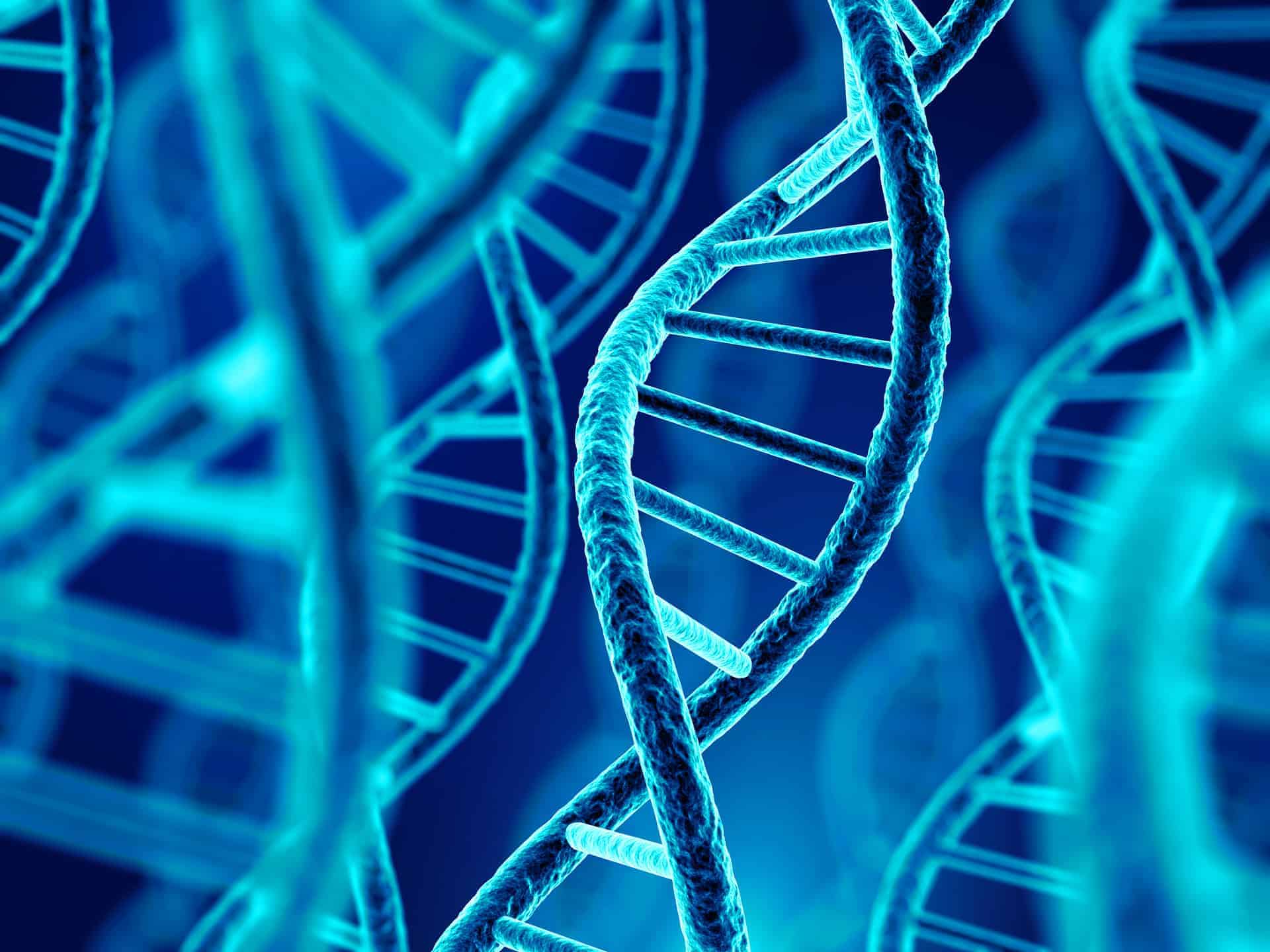Do you ever wonder if you’re going to have the same health issues as a family member?
After all, I share the same genetics.
Or maybe you’ve done one of those DNA tests that let you know what diseases you’re more likely to develop?
If it’s in my DNA, it’s almost certainly going to happen, right?
Maybe you’re worried that your child is going to have the same struggles with metabolism and weight gain you’ve dealt with for years?
They’re going to inherit my ability to put on weight just by looking at a plate of pasta, aren’t they?
Not so fast – genetics are more complex than that!
I always love it when a patient brings a sibling along with them to my office. I find it fascinating to notice the similarities – eye color, build, nervous laugh – and also the differences. Because while you share the same parents, you’re not made up of exactly 50% mom and 50% dad, and neither is your sibling! Genetics is only one part of the puzzle – the field of epigenetics has so many mysteries waiting to be unlocked – with amazing developments for managing our health!
How Does Genetic Inheritance Affect Health?
Your genes are a set of specific instructions that are packed tight into sets of chromosomes – each cell in your body contains 23 pairs of chromosomes. Apart from the sex chromosomes, there are two copies of each gene in each cell – one from your mother, and one from your father. The dominant gene is the set of instructions carried out by your body: for example, giving you brown eyes instead of blue. Your whole set of genes is known as your genome, and it contains every piece of information – think of this as a set of encyclopedias included in every cell!
There are certain genetic mutations that can occur either at random, or as a result of a parent’s genes, that can affect a person’s health – either by including additional chromosomal information, or a slight change to a chromosome.
A few examples of genetic mutations include:
- Down’s Syndrome
- Sickle Cell Anemia
- Hemophilia
- Cystic Fibrosis
- Muscular dystrophy
With so much emphasis on testing for genetic anomalies, and the importance of genetics when studying disease, you may find it surprising that disease caused by genetics alone is relatively rare. So why are we so focused on genetics? Maybe because our genetics are an easy scapegoat – meaning we don’t need to take control if they’re to blame – after all, there’s no way to change them, right?
But what if I told you there are ways to change how your DNA is read – and that lifestyle choices you make every day can play a huge part in these changes?
Enter epigenetics.
What Is Epigenetics?
Epigenetics is a field of study centered on your epigenome. The epigenome is a collection of additional information that is layered on top of your DNA – a set of chemical tags that flags which of your genes are read and followed, and which are ignored completely. Returning to my metaphor of the genomes being the encyclopedias in every cell – epigenetics is where certain sections are underlined for emphasis, while other sections that are not needed have been crossed out. And these tags change from cell to cell – after all, a cell in your brain doesn’t have the same function as a cell in your gut wall!
Additionally, these chemical tags are not permanent, even though occasionally they can be inherited from your parents! Through studies in mice, scientists have discovered a link between epigenetic mechanisms and diet in pregnancy causing changes in offspring. Studies on humans in Sweden and the Netherlands show a three-generation reaction to famine – a grandparent’s nutritional deprivation can have an impact on the future generation’s predisposition to diabetes and cardiovascular disease.
Can Genes Change Due to Environment?
Epigenetics can change as you go through life, in response to all sorts of stimulus. Scientists are hard at work figuring out the variables, but we do know that environment is important during childhood, and beyond. Above all, any outside stimulus has the potential to change your epigenetics – for better, or for worse.
Factors that can influence your epigenetic expression:
- Diet – Such an important influence on epigenetics to the extent that it has its own subsection of study: nutrigenomics. While nutrition is important to epigenetics in early life, it can also have a huge effect later on.
- Environmental toxins – In our modern world, we come in contact with so many man-made environmental toxins, and these have a potential effect on your gene expression. There are studies on how endocrine-disrupting chemicals (EDCs) – like phthalates for example– can affect your epigenetics as well as your endocrine system and subsequent hormone levels.
- Hormones – The link between hormones and your epigenetics starts in the womb, as your mother’s hormones triggered epigenetic changes to influence development. Early studies show that when you experience stress, causing your cortisol levels to rise, the cortisol causes epigenetic changes in your brain.
- Exercise – There are so many benefits to exercising, but one is that it can have a positive influence on your epigenetics, making changes to your epigenome in your muscle and fatty tissue.
- Medications – Unfortunately, it’s emerging that pharmaceutical drugs can have an impact on your epigenome, with the potential to lead to disease.
- Early trauma – Possibly linked to the changes caused by high cortisol levels detailed above, the experience of child abuse or traumatic life events in early years is linked with specific changes in the epigenetic expression.
Make no mistake, though the above list of factors should be taken seriously in relation to your health, the wonderful thing about epigenetics is that the markers can be changed. You have it in your power to turn it around – how empowering!
What Lifestyle Changes Can Help My Genes?
Hopefully, the list above has given some clues for how to improve your gene expression and help reduce the risk of developing certain diseases. But here are a few additional ideas to help you harness the power of epigenetics!
Make changes to your:
- Eating habits – Try to remember food is medicine when making dietary choices. Eating well – largely plant-based, healthy fats, with an emphasis on organic produce and grass-fed, pasture raised, humanely treated livestock – can have a huge impact on your health, mindset, and energy levels.
- Stress levels – Your brain is amazing, but when it comes to perceived stress, it can be a little dumb, triggering unnecessary cortisol release, and putting your body on high alert! Time to adjust what you detect as stress, through meditation, deep breathing, hypnotherapy, tapping, therapy and/or counseling, or by changing your situation entirely.
- Level of physical activity – While exercise can alter your epigenetics, this doesn’t mean you have to go in hard all the time. If anything, intensive exercise can cause heightened cortisol during times of high stress creating more problems. Instead, focus on bringing movement into your daily life, by getting up from your desk and stretching every hour, going to a yoga or tai-chi class, having a dance party in the morning with breakfast, going for an after dinner walk around the neighborhood with your loved ones – make sure it’s enjoyable, and that it breaks up your day.
- Environment – Don’t try to change this overnight but take time to reduce the plastics you use in food preparation and storage and pay attention to the products you use on yourself and your home stop.
- Reliance on long-term medication – Obviously do not stop taking medication without consulting your doctor first, but it’s wise to have a medication review on a regular basis and talk through your options with your doctor. The goal is to treat the root causes that led you to be on medication in the first place, thus decreasing the need if at all possible.
- Relationship with the past – If you recognize that you have unresolved issues stemming from your past or even your childhood, it may be wise to look into finding a therapist to work through your feelings. Therapy can also help you manage your stress.
I find the subject of epigenetics so fascinating, and a wonderful counterargument to the idea that the genes we’re born with rule our destiny. On the contrary, we can always make changes to improve ourselves. Hopefully, armed with this new knowledge, you can start to take control of your own health!
If you’re interested in improving your diet and healing your body fully in the Phoenix, Scottsdale, Paradise Valley, Arizona area, call to book an appointment at 602 892-4727 or fill out our contact form.









